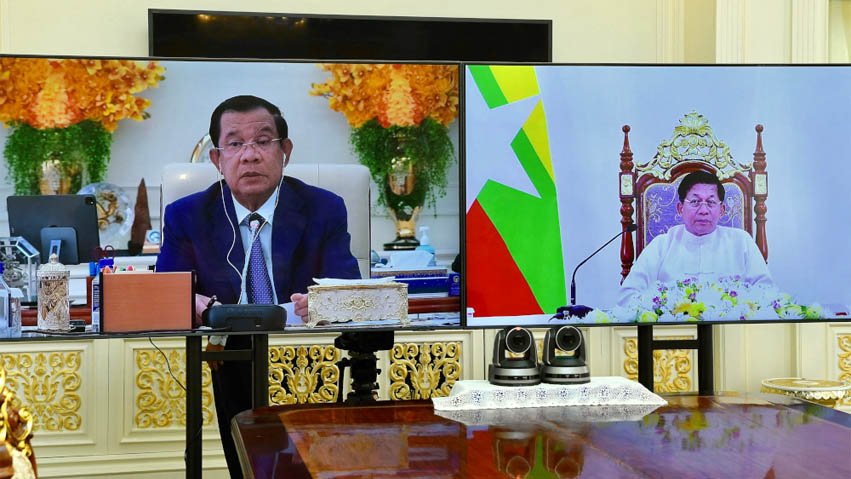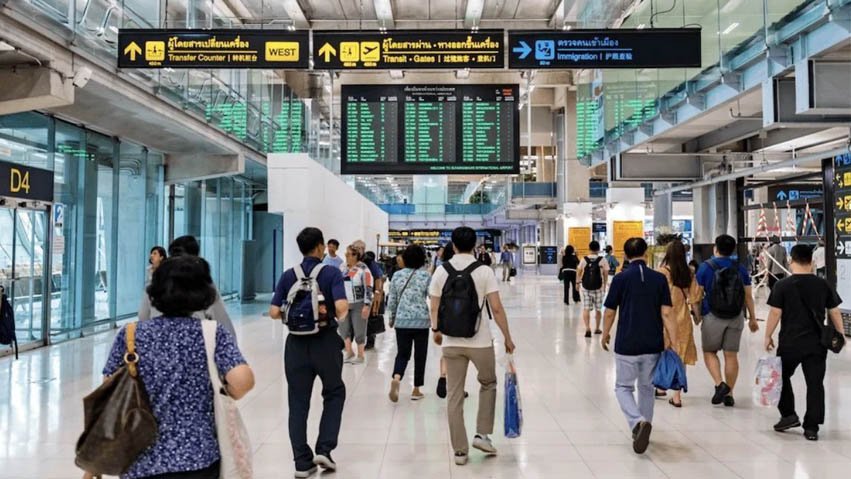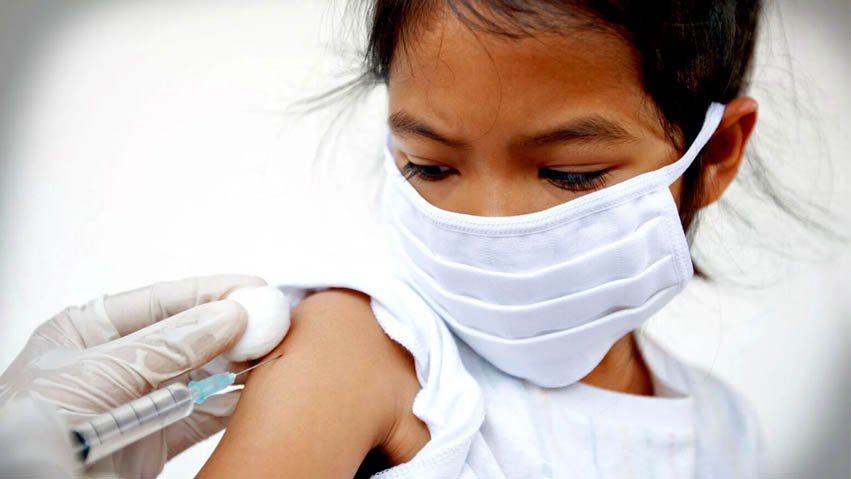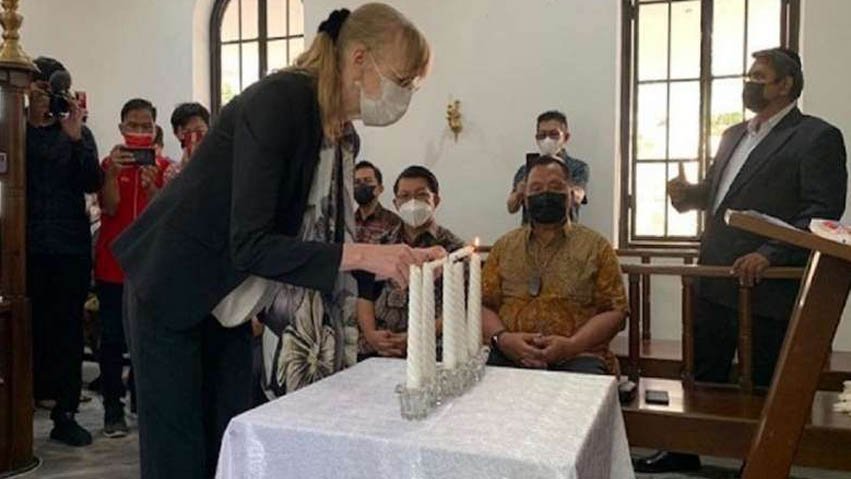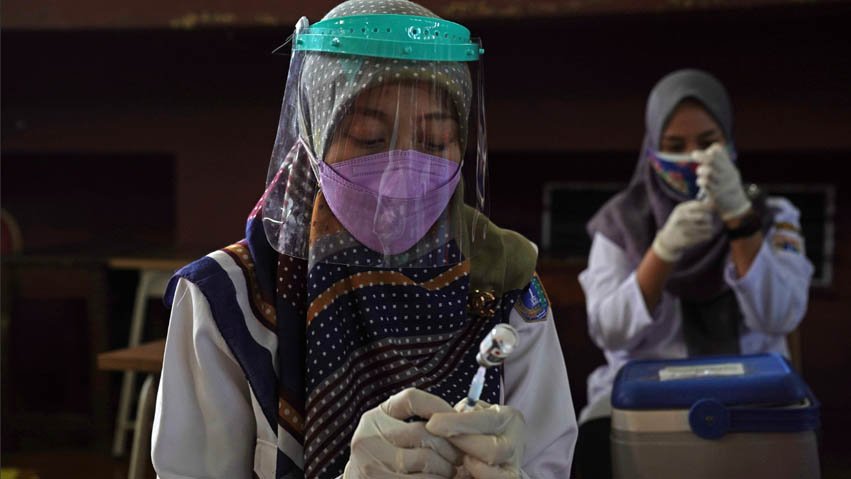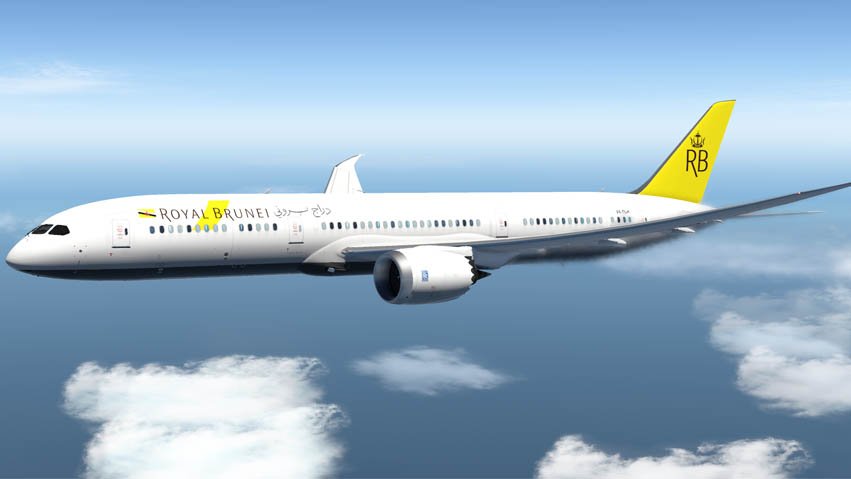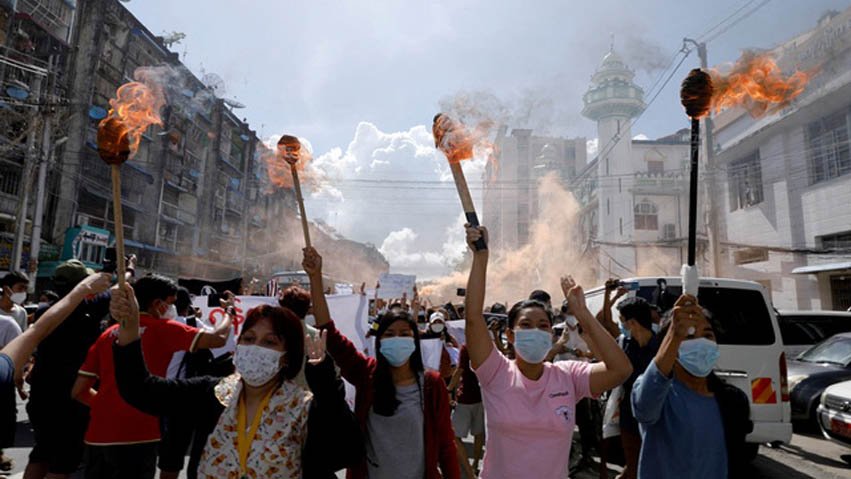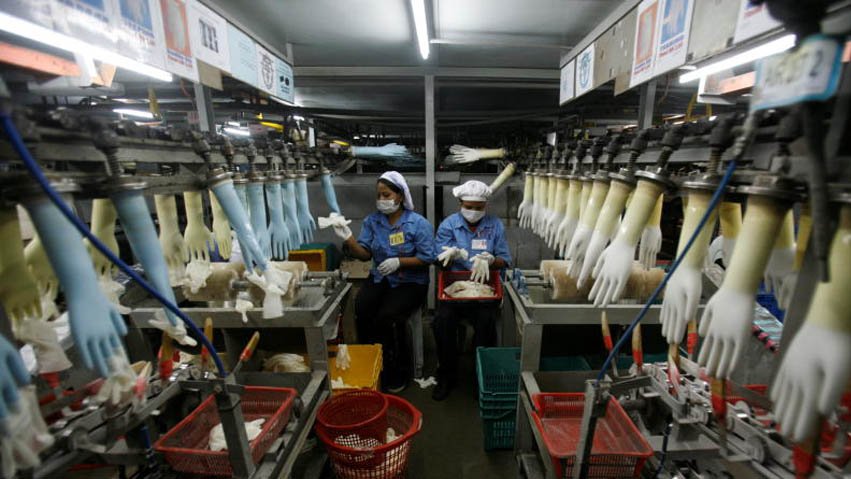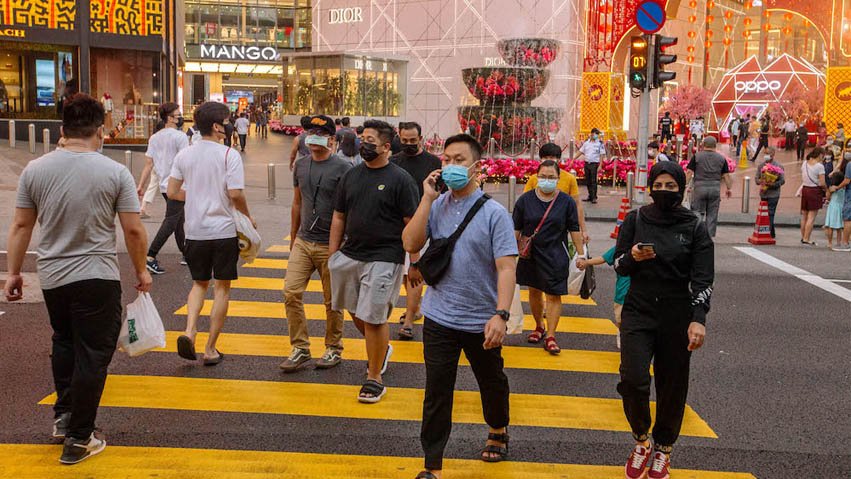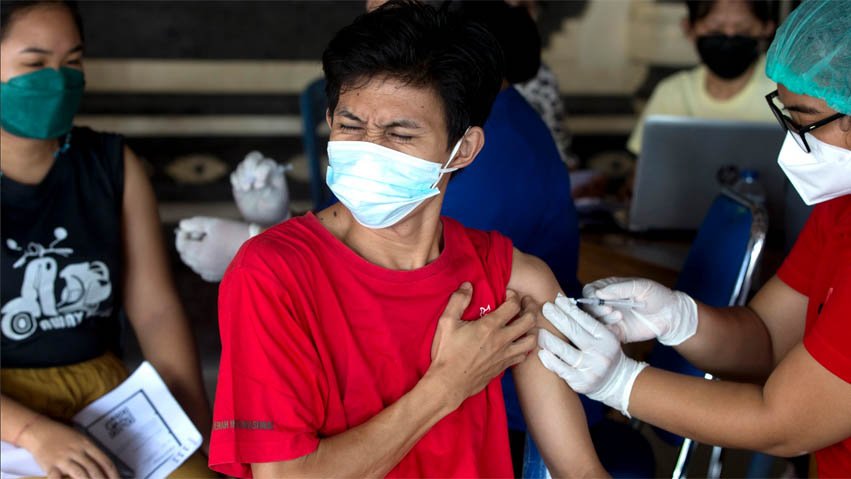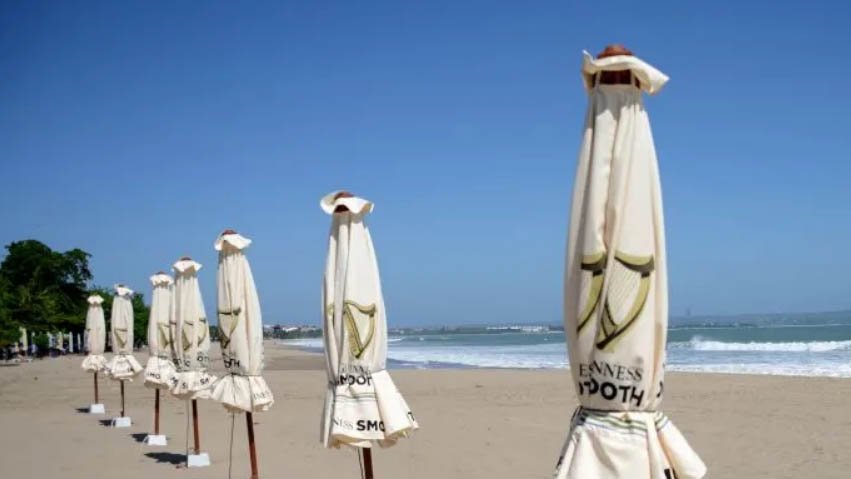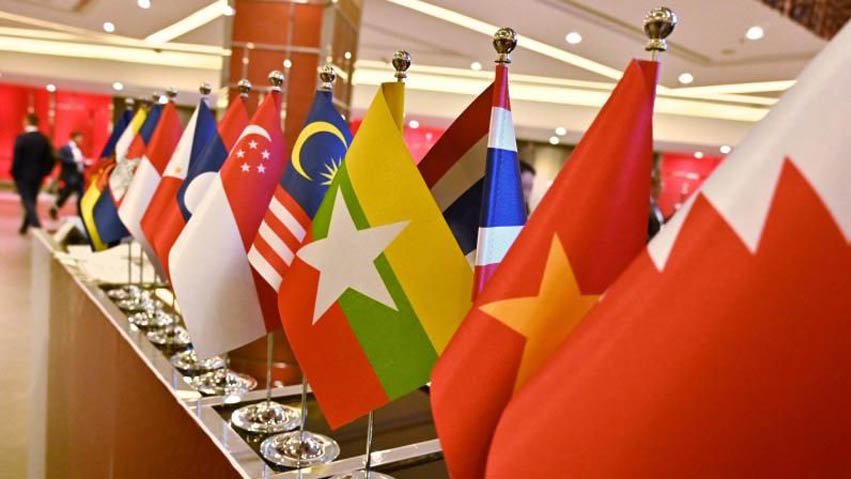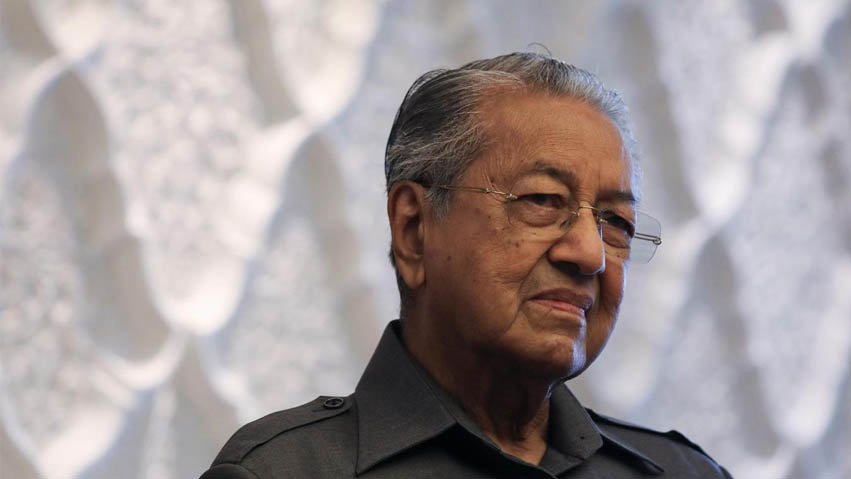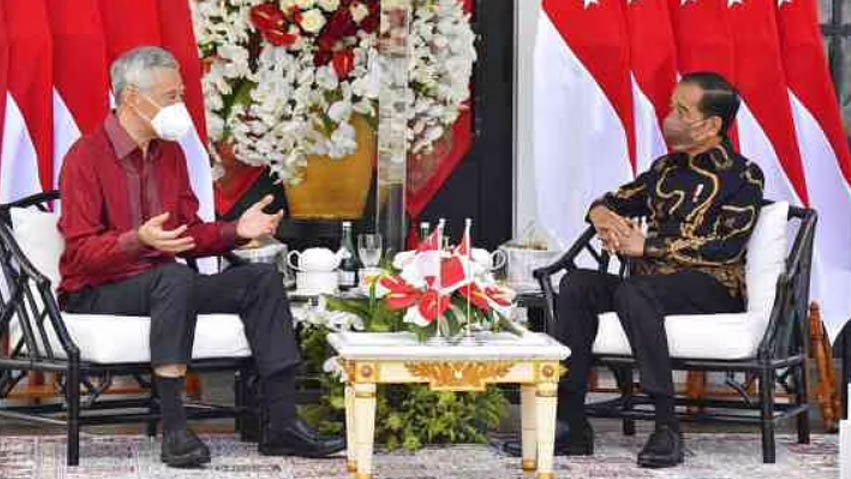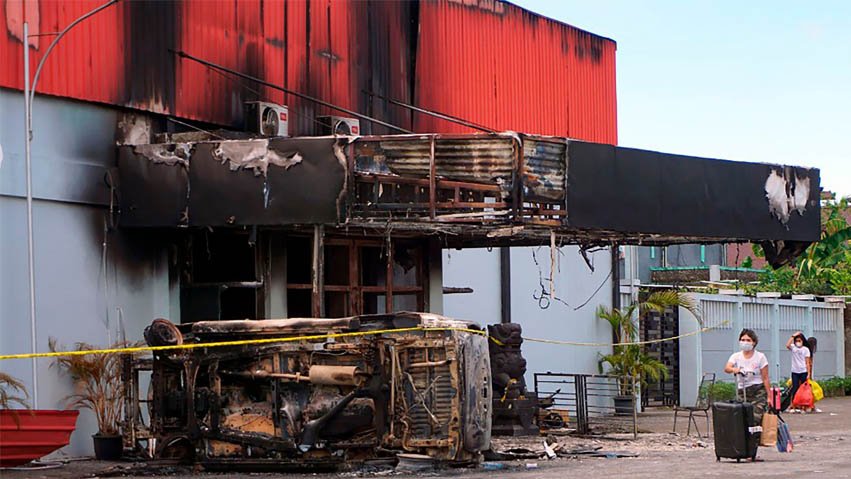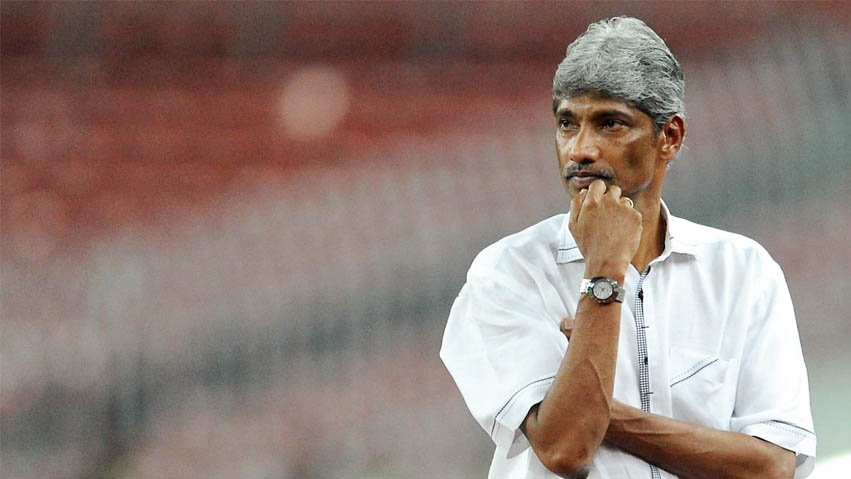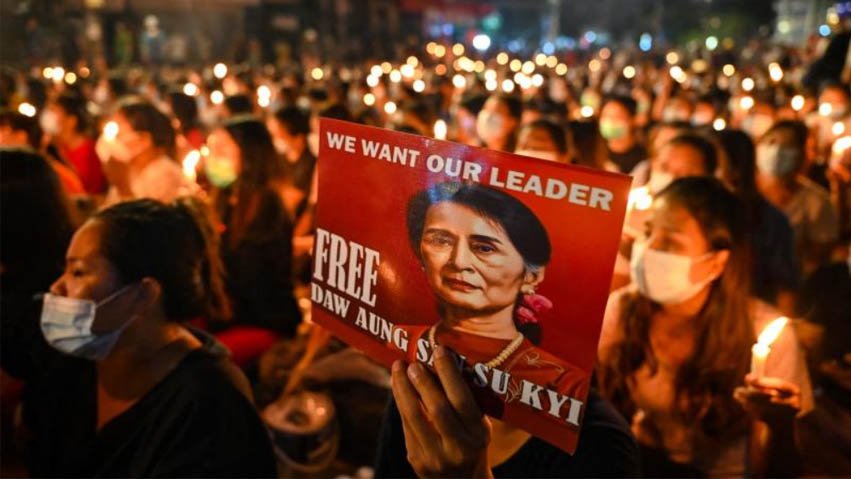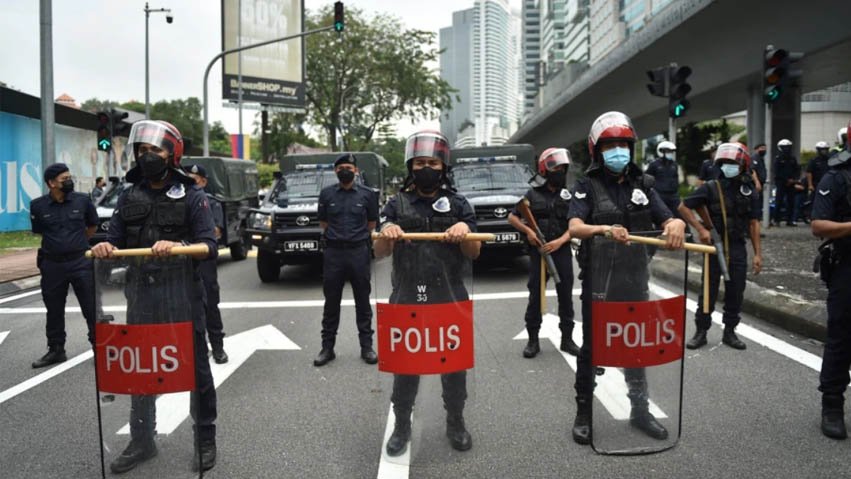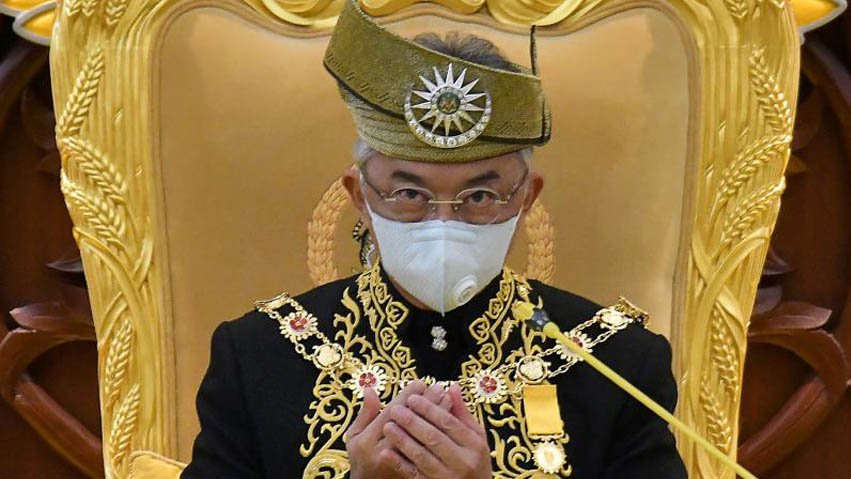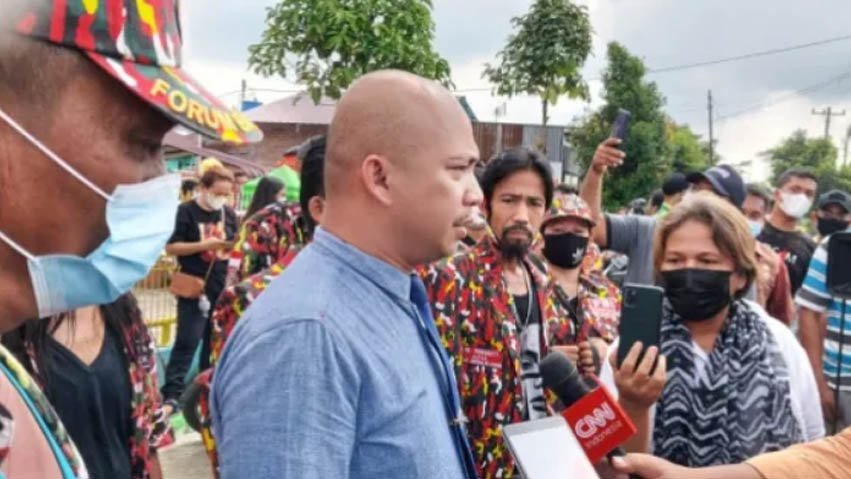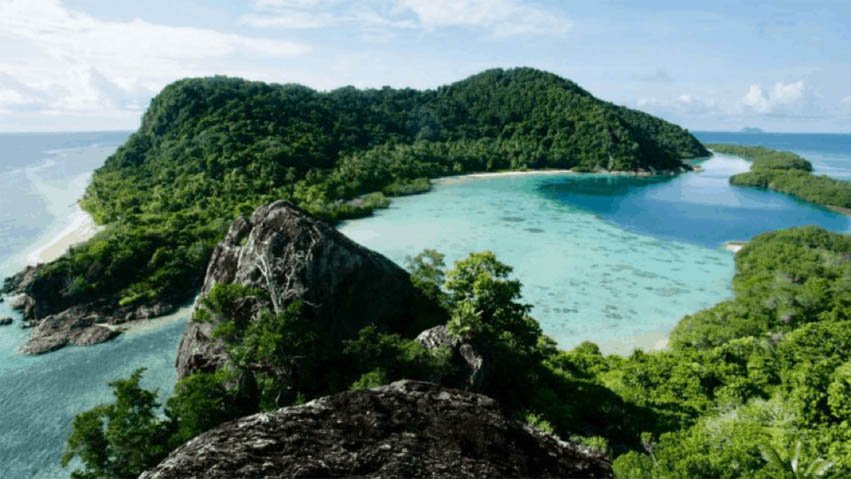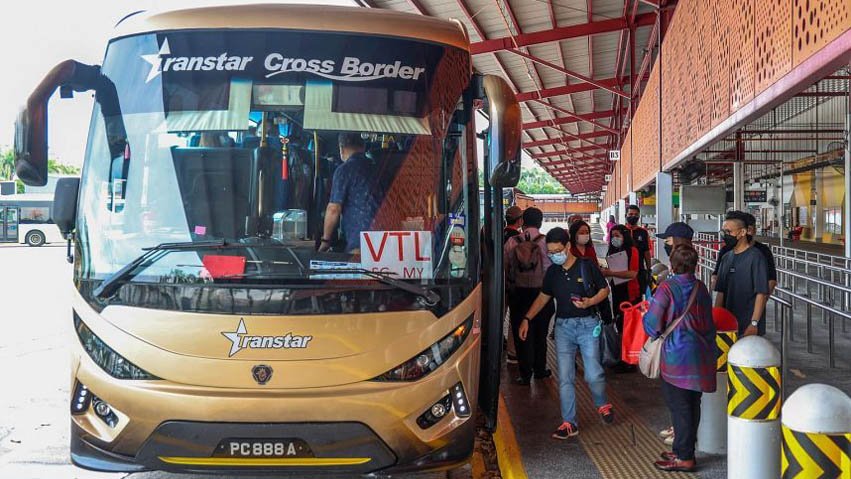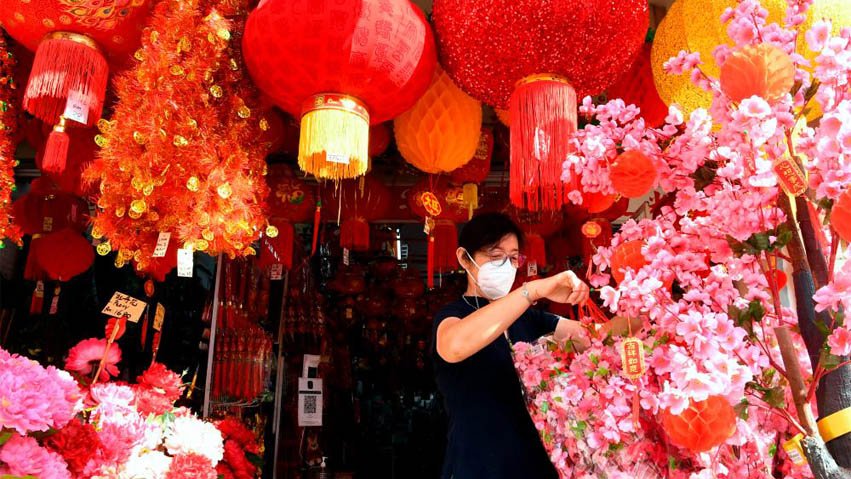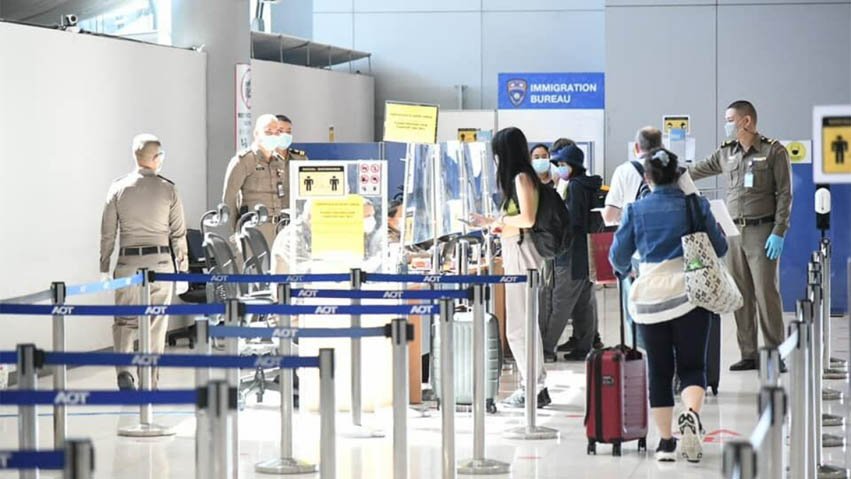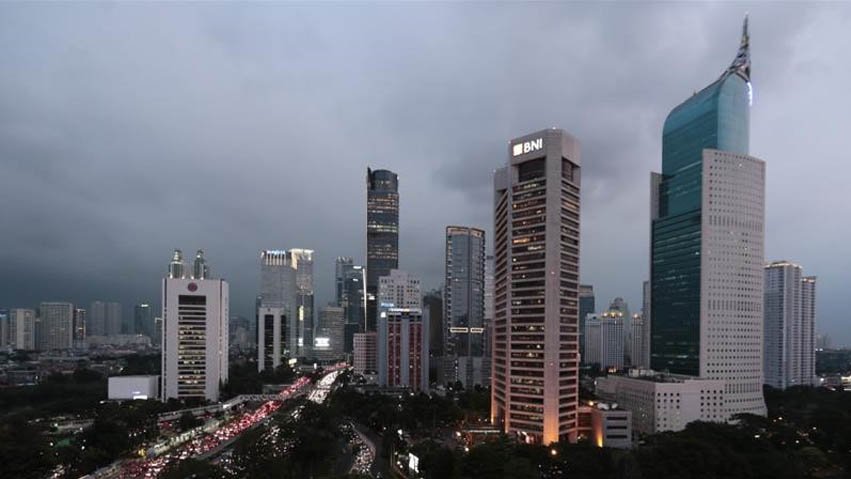-
Posts
4692 -
Joined
-
Last visited
Content Type
Profiles
Forums
Downloads
Everything posted by ASEAN NOW Content Team
-
In place of Myanmar's military-appointed foreign minister, a non-political delegate was invited to a regional ministerial conference later this month, Cambodia announced on Thursday. Cambodia is the current head of the Association of Southeast Asian Nations, which surprised everyone by excluding Myanmar's junta from critical meetings late last year due to its inability to follow through on a peace plan agreed upon with the bloc. Cambodian Prime Minister Hun Sen had attempted to re-engage with the junta, indicating that he wished to bring the junta's leaders to the 10-member bloc's meetings once more. However, due to a lack of progress in the peace plan, ASEAN countries were unable to achieve an agreement on inviting Foreign Minister Wunna Maung Lwin, according to Cambodia's Foreign Ministry spokesman Chum Sounry. "In the meanwhile, rather than keeping the seat unfilled, we encourage Myanmar to be represented at the retreat by a non-political level," Chum Sounry told Reuters, adding that it was up to Myanmar to decide who the representative should be. A spokesman for Myanmar's military regime did not return a call seeking comment. On the 16th and 17th of February, Cambodia will hold a ministerial meeting. find out more According to data published by the United Nations human rights office, Myanmar has been in turmoil since the military ousted an elected government a year ago, with roughly 1,500 civilians killed in the junta's campaign on its opponents. Troops in the countryside are also fighting on many fronts with ethnic minority forces and pro-democracy organisations who have taken up arms. Cambodia said it was "extremely concerned" about reports of continuous violence and a worsening humanitarian situation in Myanmar in a statement released on Wednesday. "ASEAN member nations emphasise the need for an immediate end of violence and for all parties to display extreme caution," the statement stated.
-
Malaysia must take steps to prepare for foreign visitors, or it will lose out to other countries. The president of the Malaysian Inbound Tourism Association (MITA), Uzaidi Udanis, proposed that Malaysia look at other nations' best practises, such as the Maldives, which had one million foreign visitors last year and had 34 airlines running direct flights into the island. "It's past time for Malaysia to reopen its borders; we must act quickly to avoid being left behind, as neighbouring nations such as Thailand have already taken steps to welcome foreign tourists." "We may loosen the limitations, but only gradually, to keep the virus at bay by placing requirements on visitors, such as requiring them to be completely vaccinated before entering the nation." Companies had begun returning their loans once the moratorium period ended, but those in the tourism business were particularly battling to recover losses suffered due to the pandemic, according to Uzaidi. He claimed that they were currently reliant on the domestic market for survival, but that they were unable to optimise it, citing online hotel bookings via worldwide websites and untapped tourism potentials as examples. People were able to celebrate the Chinese New Year in the new normal after not being able to do so during the early days of the epidemic, thanks to the relaxing of Covid-19 restrictions, he claimed, as they warmed up to the concept of living with the virus. This, he said, was reinforced by the fact that, as part of its initiatives to safeguard the community from illnesses, Malaysia has one of the highest immunisation rates in the world. He said that the government's previous initiatives, such as the Langkawi international tourism travel bubble pilot project and the Singapore-Malaysia Vaccinated Travel Lane (VTL), had been favourably received, and that the international borders should be reopened entirely. If the government decides to reopen the borders, he believes the government should reassess the harsh requirements imposed on foreign visitors. "For example, a client from the United Kingdom told me that while on an eight-day trip to Langkawi, he had to take Covid-19 tests every day. The government should reconsider because the severe requirements will deter potential clients, putting the industry in jeopardy in the long run." Meanwhile, Datuk Dr N.K.S. Tharmaseelan, the former president of the Malaysian Medical Association, proposed reopening borders in phases to travellers from countries that were not considered high-risk. "They must still produce proof of having received both their immunizations and booster shots (as all Malaysians must) as well as verification of negative results before travelling." Alternatively, they could be offered a shorter quarantine period of a few days with limitations and conditions. "While public health must be prioritised, we must also consider economic sustainability and return the country to some form of normalcy," he said. He added the number of daily confirmed Covid-19 cases had dropped to roughly 2,000 to 3,000 per day in the recent fortnight. He said that about 99 percent of daily new instances were in Categories One and Two, which had minimal or minor symptoms, demonstrating that Malaysia was on track with vaccinations and boosters. "Every industry plays a vital role. The majority of the varieties were imported from other countries. As a result, international visitors, particularly those from high-risk countries, should be closely monitored, with rigorous adherence to SOPs, immunizations and boosters, as well as tests. "We're doing pretty well (in containing the virus). So, in the future, reopening the borders and gradually removing some restrictions in accordance with the scenario and circumstances should be the strategy. We cannot simply remove all constraints because that would be disastrous.
-
Malaysian children aged 5 to 11 are now receiving the Covid-19 vaccine as part of an effort to increase immunity among the very young. Reuters reported that yelps of pain could be heard at a vaccination centre in Malaysia's capital, Kuala Lumpur, as little children waited nervously beside their parents. Sophie Lee Ming Qi, 8, says she's happy to be better protected, despite the fear in the air. "I think there's a better possibility I won't have Covid now, and I'll be able to eat out." Malaysia's vaccine rollout has been exceptionally successful, with 80 percent of the country's 32 million people receiving two doses of the Covid-19 vaccine, including nearly 98 percent of adults. According to local media estimates, roughly 517,000 children have signed up for the Pfizer mRNA vaccination and will receive it. Covid-19 has been contracted by 147,282 Malaysian children aged 5 to 11 in the last six months. Twenty-six of them have died. A parent of one of the children who will be vaccinated, Lee Ser Wor, expressed relief that his child will now be better protected. "It's a fantastic move." It's beneficial for them to be protected against the Covid-19 virus, and by doing so, it's also safeguarding the general population." Malaysia has reported 2.8 million illnesses and nearly 32,000 deaths since the outbreak began. Discover Cigna’s range of health insurance solutions created for expats and local nationals living in Thailand - click to view
-
Human rights organisations have slammed Indonesia's highest Islamic clerical body for calling for the demolition of a recently opened Holocaust museum in a Jewish neighbourhood. According to the Indonesian Ulema Council, the museum in Minahasa, North Sulawesi province, violates the constitution and is inflammatory (MUI). The Shaar HaShamayim Holocaust Museum was erected by the local Jewish community and is the first of its kind in Southeast Asia. It was inaugurated on Jan. 27 by German ambassador Ina Lepel to commemorate International Holocaust Day. "The museum is dedicated to combating racism, anti-Semitism, and all forms of intolerance," Lepel stated at the launch. Her statements were not well received by the Ulema Council. In a statement, Muhyiddin Junaidi, deputy chairman of the MUI's advisory council, said, "The Indonesian government should act decisively and promptly demolish the museum since it is provocative and its existence is not welcomed by many in this country." He claims that the museum is not beneficial to Indonesians and that it harms Palestinians' feelings. He also accused the Jewish community in Minahasa of attempting to persuade the Indonesian government to establish diplomatic relations with Israel. Indonesia, like many other Muslim countries, refuses to recognise Israel as a sovereign state. The MUI, according to Bonar Tigor Naipospos, vice head of the Setara Institute for Democracy and Peace, has a poor understanding of history and what the museum represents. On Feb. 2, he told UCA News that the museum "sends a message that a tragedy against mankind occurred and millions of people were victims." He claimed the MUI call was more about religious intolerance than "learning lessons from the tragedy so that it doesn't happen again," when it should have been "taking lessons from the disaster so that it doesn't happen again." "The museum is necessary for the young generation to warn them that cruelty to others can result in the slaughter of millions of people," he added, adding that calling something that actually happened "provocative" is unusual. The Jewish population of Indonesia is estimated to be around 5,000 people, with the majority of them arriving during the Portuguese and Dutch colonial periods. The local administration in North Sulawesi, which has a large Christian population, authorised the local Jewish community to erect a synagogue in 2004 and a Holocaust museum subsequently.
-
As the highly transmissible omicron variety spreads across the country, Indonesia has seen the largest number of Covid-19 infections in almost six months. On Thursday, the authorities recorded 27,197 new infections, the most since August 14. The number of persons who died every day reached its greatest level since October 21 when 38 people died from the sickness. Cases have increased dramatically since late December, when there were fewer than a hundred. As the number of cases rose, President Joko Widodo asked the ministers in charge of the pandemic response to reassess the limitation policy immediately, while also urging people to remain calm and follow health protocols. Indonesia is keeping an eye on hospitalisation to see if there are any changes to the restrictions. Despite the increase in illnesses, Indonesia is not implementing stringent movement restrictions, instead calling people to avoid gatherings and decreasing in-person schooling to half capacity. The government is nearly tripling the number of hospital beds dedicated to Covid-19 treatment as it prepares for daily cases to reach 285,000, which would be five times the previous high. Discover Cigna’s range of health insurance solutions created for expats and local nationals living in Thailand - click to view
-
Royal Brunei Airlines has extended its two-year contract with ECGSSA ECS Group to represent the airline's cargo business at a mix of online and offline locations throughout nine territories and 26 countries. South East Asia, Australia, China, the Middle East/Saudi Arabia, New Zealand, India, Canada, and the United States are among these countries. In 2018, the GSA partnered with Royal Brunei Airlines in 11 countries: Singapore, Malaysia, Thailand, the Philippines, Vietnam, Hong Kong, the United Kingdom, Indonesia, Taiwan, Japan, and Korea. This new contract, which begins on February 1 and ends on January 21, 2024, now includes 26 countries, however Indonesia, Taiwan, and Japan are excluded. The pandemic severely hampered the airline's operations, which had previously included daily flights to the majority of its destinations. Certain locations are currently unavailable. ECS Group, on the other hand, will continue to assist Royal Brunei in broadening its destinations, and expects a significant rise in cargo over the next two years. "We are dedicated to providing the finest service possible to our customer ECS Group, and we are pleased to have been awarded this contract extension," said Noor Azizah, ECS Group regional VP Asia Pacific (exc. China). "Royal Brunei Airlines is thrilled to maintain our Cargo GSA relationship with ECS Group," stated Christina Chua, senior vice president passenger, cargo, and charter sales at Royal Brunei Airlines. The renewed relationship will boost Royal Brunei Airlines' and ECS Group's alliance, with expanded coverage of key territories like as Australia and the United Arab Emirates, as well as prospective offline markets in the United States, Canada, and India."
-
The once-loud and colourful protests have been replaced with an unnerving silence. Protest leaders have called for a "silent strike" on the anniversary of the military takeover. Millions of people took to the streets in Myanmar in the days after the military seized control on Feb. 1 last year, walking off their jobs in what has turned into a statewide civil disobedience movement and rejecting the junta's brutal violence. One year later, the Southeast Asian country is engulfed in strife, its economy has been destroyed, warfare has spread throughout the country, and public institutions have crumbled. Thousands of citizens have been slain, including peaceful protesters. Suspects have been tortured. The original daily protests, which were noisy and colourful, have given way to an unnerving silence. Protest leaders have called for a "silent strike" on Tuesday to mark the anniversary of the coup, urging people to stay at home, close their shops, and refrain from outdoor activity for six hours. The junta distributed flyers warning that those who took part would face charges of terrorism, provocation, and breaking the legislation on electronic communications. Hundreds of people have already been arrested. The regime has created so much animosity that it has been unable to maintain power. Hundreds of armed rebel units have cropped up across the country, and a shadow National Unity Government has emerged, led in part by deposed elected officials, to assist spearhead opposition to the junta. "The war has expanded to the rest of the country since the early days of the coup, when protests were centred in the cities," said Khu Ree Du, a spokeswoman for the Karenni Nationalities Defense Force, one of numerous armed organisations opposing the military. "Because what the Myanmar military has done is terrible, the shape of the conflict will intensify in the following year." The military detained around 100 elected politicians, including Daw Aung San Suu Kyi, the country's senior civilian leader, during the coup. On 17 charges, she may face up to 173 years in prison, according to her supporters. So far, she has been found guilty on five counts. However, the army commander in chief and coup leader, Senior Gen. Min Aung Hlaing, appears to have misjudged public disdain for him and his generals, who have responded with a ruthless crackdown.
-
Malaysia's Human Resources Ministry announced on Sunday (Jan 30) that it would summon all companies facing US import restrictions due to claims of forced labour abuses to discuss immediate action. Malaysian companies, which include major suppliers of palm oil and medical gloves, have come under heightened attention as a result of reports of migrant worker abuse. Migrant workers make up a considerable portion of the country's manufacturing sector. The US Customs and Border Protection (CBP) announced on Friday that it will restrict imports from disposable glove maker YTY Group, citing evidence that the company utilised forced labour. This is the eighth such ban on a Malaysian company in two years. Sime Darby Plantation, a Malaysian palm oil manufacturer, was also found to be using forced labour in its operations, and the company's commodities were seized. M Saravanan, Malaysia's Human Resources Minister, stated on Sunday that he will meet with all companies facing import bans in the US, as well as two glove manufacturers, WRP Asia Pacific and Top Glove, whose prohibitions had been overturned by the CBP. Saravanan said in a statement that "the measures established by these two enterprises can be used as guides and enhancements for other firms." Saravanan also announced that the Ministry of Human Resources and the Department of Labour will conduct an immediate investigation into the charges, and that enterprises that failed to alter their procedures would face severe consequences.
-
After recording 4,774 infections in the previous 24 hours, Malaysia's new daily Covid-19 cases stayed below the 5,000 level. This was also a drop from yesterday's 4,915 instances, which brought the country's three-day trend of above 5,000 cases in daily Covid-19 to a stop. It also puts the overall number of Covid-19 cases in the country to 2,870,758 since the outbreak began. Tan Sri Dr Noor Hisham Abdullah, the Director-General of Health, also revealed that just 36, or 0.8 percent, of the cases reported today were in hospitalisation categories 3, 4, and 5. "At this time, 114 patients are being treated in intensive care units, with eight of them being suspected, probable, or under investigation for Covid-19." "Of these 114, 62 require ventilators to assist them in breathing, including 50 who have been verified as Covid-19 positive," he explained. In the last 24 hours, 14 additional clusters have been discovered, increasing the total number of active clusters in the country to 314. According to him, Malaysia's infection rate is currently at 1.14, with Perlis having the highest infectivity rate at 1.25. Discover Cigna’s range of health insurance solutions created for expats and local nationals living in Thailand - click to view
-
According to health officials and researchers, Indonesia is bracing for a third wave of COVID-19 infections as the highly transmissible omicron strain drives a jump in new cases. In the previous 24 hours, the government reported 11,588 new confirmed illnesses and 17 deaths. It was the most cases per day since August, when Indonesia was battling a delta-driven wave. By December, Indonesia had recovered from a rise that was among the worst in the region last year, with daily infections falling to around 200. However, only weeks after the country recorded its first local omicron transmission, infections are on the rise once more. "The acceleration will be tremendous...." "In the near future, we will see a strong increase," Health Minister Budi Gunadi Sadikin said at a press conference on Friday, adding that the current wave would likely peak at the end of February or early March. He said that the government had set aside extra beds for COVID-19 patients, increased tracing and testing, and increased immunizations across the board. However, given the lack of enforcement, several health experts wonder that the measures will be sufficient. According to Jakarta Deputy Governor Ahmad Riza Patria, bed occupancy rates in Jakarta, the epicentre of the omicron outbreak, increased from 5% in early January to 45 percent on Saturday. In the metropolis, where more than 80% of the 10 million citizens have been vaccinated, he claimed "omicron is moving too swiftly." Pandu Riono, an Indonesian epidemiologist and government academic adviser, said Indonesians are still frightened by the delta variant, which caused many people to die in isolation at home or while waiting for emergency care in overcrowded hospitals. During last year's spike, hospitals constructed makeshift intensive care units out of canvas tents, and patients waited for days to be admitted. Those who were lucky enough to acquire oxygen tanks were wheeled out on the sidewalk, while others were told they would have to find their own. A third wave, according to Riono, is unlikely to bring Indonesia's health-care system to its knees because omicron generates fewer severe symptoms than delta. On Friday, President Joko Widodo urged asymptomatic patients to self-isolate at home for five days and use telemedicine services, which provide free access to doctors, medicines, and vitamins, or attend a community health centre. Discover Cigna’s range of health insurance solutions created for expats and local nationals living in Thailand - click to view
-
Officials on Indonesia's holiday island of Bali said on Monday (Jan 31) that it will begin inviting visitors from all countries later this week, more than three months after stating it was only available to certain nationalities. Despite the fact that Bali officially opened to travellers from China, New Zealand, and Japan in mid-October, there have been no direct flights since, according to tourism minister Sandiaga Uno. Thailand and the Philippines made similar declarations in December, putting quarantine waivers on hold due to initial concerns regarding vaccination efficacy against the Omicron strain of COVID-19. Amid having gotten outbreaks under control in the second half of last year, the decision comes despite a persistent uptick in COVID-19 cases in Indonesia this month. The growth has been attributed to Omicron by health officials. Bali, which is known for its surfing, temples, waterfalls, and nightlife, had 6.2 million international tourists in 2019, the year before COVID-19 struck, but strong pandemic border controls wreaked havoc on tourism, which accounts for 54 percent of the economy. Singapore Airlines announced on Friday that flights to Bali from Singapore will resume on February 16. International tourists who have been vaccinated against COVID-19 would still be obliged to spend five to seven days in quarantine, according to senior minister Luhut Pandjaitan. Indonesian visitors were allowed to visit two islands near Singapore last week. The island has been receiving foreign visitors via the capital Jakarta in recent months, according to Ida Ayu Indah Yustikarini of the Bali Government Tourism Office, although no official data are available.
-
Malaysia's policy of only inviting non-political officials from Myanmar to Asean's high-level meetings will stay unaltered unless the Five-Point Consensus is fully implemented (5PCs). This perspective was voiced by Prime Minister Datuk Seri Ismail Sabri Yaakob during a video conference with his Cambodian counterpart Hun Sen today, according to the Malaysian Foreign Ministry (Wisma Putra). He also reaffirmed Malaysia's position on the need for the Asean Chair's Special Envoy on Myanmar to have access to all parties involved in the country in order to find a peaceful solution in Myanmar's best interests. Malaysia endorses the selection of Prak Sokhonn (Cambodian Deputy Prime Minister and Foreign Minister) as the new Special Envoy in this regard, according to the statement. Ismail Sabri emphasised the urgent need for the situation in Myanmar to de-escalate and for violence against civilians to end. In the interests of Myanmar's people, he also called for an open political discourse with all parties involved, as well as the immediate and unconditional release of all political prisoners, including Aung San Suu Kyi and U Win Myint. Proposed actions to resolve the situation in Myanmar, according to the Prime Minister, should be discussed at the level of Asean Foreign Ministers and Senior Officials. "Malaysia concurred with the Asean Chair's suggestion to convene the Asean Foreign Ministers' Retreat as soon as practicable," the statement stated. Ismail Sabri also emphasised that Malaysia remained dedicated to assisting Asean's efforts to give humanitarian assistance to Myanmar's people, according to Wisma Putra. He emphasised the importance of continuing humanitarian assistance through the Asean Coordinating Centre for Humanitarian Assistance on Disaster Management (AHA Centre), which is supported by Asean member states and global partners.
-
Mahathir Mohamad, Malaysia's former prime minister for more than two decades, is showing indications of improving health, but his daughter announced on Tuesday that he will remain in hospital to get specialised care (Jan 25). Marina Mahathir stated in a statement that the 96-year-appetite old's has improved and that he has even made jokes with his family. She also stated that her father had asked that no one be concerned about his health. "All who prayed for his rapid recovery moved Mahathir and his family," Marina said, referring to the wishes expressed by foreign leaders and the general public. He is being treated at the National Heart Institute under the supervision of a specialist. "At this time, (the National Heart Institute) only allows close family members to visit," she noted. Mahathir, who is still a member of parliament, was readmitted to the hospital on January 8 after a successful elective medical surgery. Dr Mahathir's condition was stable on Saturday, Marina added, adding he was responding well to therapy following the procedure. His doctors indicated they were satisfied with the findings of the necessary studies, so he was admitted and discharged in December.
-
In what is viewed as a "significant step forward" in relations between the two Southeast Asian neighbours, Indonesia and Singapore inked a series of agreements on Tuesday addressing extradition, defence, and airspace control. Following a meeting between President Joko Widodo and Prime Minister Lee Hsien Loong in Indonesia's Bintan island as part of their annual leader's retreat, senior cabinet ministers signed the agreements. "Today, our bilateral ties take a huge stride forward," Lee remarked at a joint press conference broadcast on the State Secretariat of Indonesia's YouTube page. Through a defence cooperation agreement, both countries agreed to realign the boundary of their respective flight information zones while also strengthening collaboration and fostering tighter engagement between their armed services. "In the future, we hope that the two nations' collaboration in law enforcement, aviation safety, and defence and security would be strengthened based on the principle of mutual benefit," Widodo said. Today's milestones, according to Fitri Bintang, a researcher at Jakarta's Center for Strategic International Studies, are "marks of growing relations" between Indonesia and Singapore. The two countries recently signed an extradition pact, under which fugitives can be extradited for a wide range of crimes committed up to 18 years ago. "The extradition deal would strengthen collaboration in the fight against crime and convey a strong, positive message to investors," Lee added. The extradition treaty will serve as a deterrent for criminals in Indonesia and Singapore, according to Indonesian Law and Human Rights Minister Yasonna Laoly. "If the two countries quickly ratify the extradition treaty, both countries' law enforcement agencies will be able to use it to prevent and combat transnational crimes like corruption and terrorism," he added.
-
According to authorities in the provincial capital of Sorong, at least 19 people were killed after a karaoke bar in Indonesia's West Papua was set on fire following a confrontation between rival gangs of youngsters in the area. According to a police spokesman, one individual was fatally stabbed in the brawl early Tuesday before the venue was set on fire with 18 people trapped inside. "Fights between adolescents in cities are common," Adam Erwini, a spokesman for West Papua police, told Metro TV. "However, the fact that it has resulted in so many deaths is unprecedented." The terrible incident at the Sorong entertainment venue was still under investigation, according to Adam, and it was unknown whether the death toll would grow. Separately, Indonesian national police spokesman Dedi Prasetyo said the brawl was between two competing gangs from the neighbouring island of Maluku.
-
With a year left on his contract, K. Rajagobal has stood down as coach of the Brunei national team. FABD and Rajagobal have amicably agreed to split ways by the end of January 2022, according to a statement released by FABD yesterday. "FABD had a difficult time making this judgement because Rajagobal had served with distinction since February of last year. "However, both parties have found it difficult due to the current scenario with the Covid-19 epidemic. "In recognising his work, FABD expressed gratitude for his brief but significant service and expressed regret for his untimely departure." Former national coach Rajagobal was set to manage Brunei in the AFF Cup qualifier against Timor Leste on December 1 last year, after taking over from Englishman Paul Smalley in May 2020. Brunei, however, withdrew due to Covid-19.
-
The NLD's Phyo Zeyar Thaw and activist Kyaw Min Yu are found guilty of terrorism by a military court, receiving the toughest punishments since the coup a year ago. A Myanmar military court has condemned a lawmaker and prominent democracy campaigner from Aung San Suu Kyi's National League for Democracy (NLD) to death. According to the generals, the NLD's Phyo Zeyar Thaw, who was arrested in November, was sentenced to death for violating the country's Counterterrorism Law. The identical punishment was issued to prominent democratic campaigner Kyaw Min Yu, better known as Ko Jimmy, according to the statement, which included photos of both men. They were convicted guilty of charges involving explosives, explosions, and financing terrorism, although information were sparse due to the hearings being closed to the public. Nilar Thein, Min Yu's wife, refuted the claims against her husband in October. Myanmar was thrown into chaos when army head Min Aung Hlaing ousted Aung San Suu Kyi's elected government and seized power for the military on February 1 of last year. The military's attempt to suppress dissent resulted in enormous rallies and a civil disobedience movement, and many have been arrested. It is estimated that almost 1,500 individuals were slain. Both Phyo Zeyar Thaw and Kyaw Min Yu were imprisoned by previous military administrations, and they are among the most renowned campaigners to be sentenced to death since the coup. For decades, Myanmar has not carried out an execution.
-
In a case viewed by some as a bellwether and test of the country's rule of law, Malaysia's anti-corruption czar has sued a local journalist for defamation for pieces challenging the legality of his past shareholdings. Azam Baki, the Malaysian Anti-Corruption Commission's chief commissioner, sued Lalitha Kunaratnam on January 12 for $2.38 million in damages and costs stemming from a pair of articles published by the Independent News Service, a local online news organisation, in October. Lalitha lists Azam's purported economic interests and links with them, questioning if they were legally declared or if they pose a conflict of interest. According to the reports, as director of investigation at the MACC in 2015 and 2016, Azam had roughly 3 million shares in two firms and over 2 million warrants in another, potentially violating legal limits for public officials. During Azam's climb through the ranks at the commission, his brothers built up their own significant commercial interests, according to the stories. At a news conference on January 5, Azam denied any wrongdoing and stated that he no longer owned any stock in any company. He said that in 2015, his brother, Nasir Baki, exploited his trading account to purchase shares, which were then moved to his brother's account later that year. Hundreds of people demonstrated in Kuala Lumpur, Malaysia's capital, on Saturday to demand that Azam resign over the allegations. Some protesters reported that police closed major roads and metro stations around the event site in advance in order to reduce the size of the throng. According to rights groups, Azam's lawsuit reflects a diminishing space for the free press and increased persecution of journalists since the progressive Pakatan Harapan coalition's government collapsed in early 2020. From 2020 to 2021, Malaysia dropped 18 places in Reporters Without Borders' annual press freedom index, the most decline of any country that year. "Certainly, there's been a worsening trend in terms of how the government engages with the press, in terms of how the government understands the role of the press, from the time of Pakatan Harapan [collapsing] to the current administration," said Alyaa Alhadjri, a representative for Gerakan Media Merdeka, or Geramm, a local press freedom advocacy group. "I believe [this lawsuit] exemplifies that," Alyaa said. "Clearly, it was an attempt to intimidate and harass," she continued. The Asia-Pacific director of Reporters Without Borders, Daniel <deleted>, said Azam's lawsuit was plainly intended to silence debate about his purported financial interests, and that there was more at stake than the free press. The complaint, he added, "clearly breaches the mission of the MACC, which is charged with investigating corruption matters." Malaysia's rule of law is in jeopardy." For years, Malaysia has had a reputation for chronic government corruption. Corruption issues including the suspected misappropriation of billions of dollars in public monies aided Prime Minister Najib Razak's government's defeat at the polls in 2018. Najib, who is still a member of parliament, was found guilty of abuse of power, breach of trust, and money laundering and sentenced to 12 years in prison. He is out on bail pending an appeal and denies any wrongdoing. Through a succession of political defections in parliament, Najib's tarnished party, the United Malays National Organization, has similarly clawed its way back to power without holding new elections. According to Cynthia Gabriel, executive director of the Center to Combat Corruption and Cronyism, a local NGO, Azam's defamation complaint against Lalitha now jeopardises the credibility of the country's top corruption-fighting body.
-
For a few days, Malaysia's King Al-Sultan Abdullah Ri'ayatuddin Al-Mustafa Billah Shah is getting a health check-up and follow-up therapy at the National Heart Institute's Royal Ward (IJN). They are related to an intervention treatment on his knee and ankle joints that he got at the IJN on September 24 last year, according to Ahmad Fadil Shamsuddin, Comptroller of the Royal Household for Istana Negara (Jan 23). According to him, the intervention was carried out after an MRI scan revealed that the monarch had suffered injuries to his knee and ankle joints while participating in sports. "Due to the adoption of COVID-19 Standard Operating Procedures in public hospitals, including IJN, this follow-up therapy was postponed from that date." "At the same time," the Comptroller stated in a statement on Sunday, "His Majesty agreed to undertake a pulmonary checkup at IJN." The king's health is usually good, according to Ahmad Fadil, and he is expected to return to Istana Negara after treatment. "All of the people are urged to pray for His Majesty's speedy recovery and long-term health," he stated.
-
Parents in Indonesia have been alarmed by a series of incidences involving young girls and boys attending religiously affiliated schools. Every parent's worst nightmare has come true. The guy accused of sexually assaulting their children was sentenced to ten years in prison by the District Court in Medan, Indonesia, in front of six heartbroken families. "Our children," one mother exclaimed as she sank in her chair, raising fears that she had passed out. Benyamin Sitepu, a 37-year-old Christian priest and principal of Medan's Galilea Hosana School, was sentenced to five years less than the maximum 15-year sentence sought by the prosecution. Because Sitepu had apologised for his actions and had previously signed a settlement deal with two of the victims' families, the presiding judge stated he awarded him a lighter punishment. The prosecution and Sitepu have both filed appeals against the sentence. Andreas Harsono, a researcher at Human Rights Watch Indonesia, told Al Jazeera that the sentence was too light, especially given Sitepu's age and Indonesia's remission system, which requires most inmates to complete around two-thirds of their sentences. If Sitepu is granted remission, he might serve only seven years in prison and be out well before he turns 50. "If he receives remission, he will still be a threat to children when he is freed," Harsono said, adding that the short prison sentence would just add to the victims' trauma. The families were disappointed that Sitepu did not receive the maximum sentence possible, according to Ranto Sibarani, a human rights lawyer in Medan who represented them. He also called for religious organisations to take more responsibility for crimes that occur in the institutions in which they operate. "If people commit crimes under the flag of the church, for example," Sibarani told Al Jazeera, "then the church ought to apologise." "Religious leaders must issue public comments stating their support for the legal process in all situations of sexual assault, as well as the victims' right to pursue legal action." In March 2021, a sexual assault scandal at a Medan junior high school erupted after six female students came forward after one informed her grandparents she had been assaulted by the priest. The girls, who were 13 at the time of the assaults, claimed Sitepu had shut them in his office and inappropriately handled them while providing "special lessons," such as ballet. Sitepu allegedly took one of the pupils to a local hotel, claiming he was taking her to off-site karate classes, where he sexually attacked her and forced her to give him oral sex, according to one of the classmates. After the student came forward, she was forced to accompany local police to the hotel and identify the room where she was assaulted on a regular basis, which Harsono and Sibarani both criticised as adding to her trauma. Because of historical views about respect for persons in positions of perceived religious authority, Sibarani believes that courts in Indonesia are unwilling to condemn religious leaders or sentence them to long prison terms.
-
The popular Indonesian holiday islands of Bintan and Batam are finalising plans to reopen their coastlines to leisure tourists from Singapore after a two-year hiatus owing to the coronavirus pandemic. The Indonesian government is now ready to launch the travel bubble, according to Coordinating Minister for Economic Affairs Airlangga Hartarto, who claimed on Monday (Jan 24) that Covid-19 instances on the two islands are under control. He claimed that the bubble's requisite protocols had been implemented. Mr Airlangga stated, "The Indonesian government is pushing the construction of a travel bubble connecting Batam, Bintan, and Singapore... This will help promote tourism." He did not provide a timeline on when the restaurant might reopen. The declaration came ahead of Singapore Prime Minister Lee Hsien Loong's and Indonesian President Joko Widodo's Leaders' Retreat on Tuesday. Travelers from Singapore are permitted to enter Indonesia via the Nongsapura ferry port in Batam and the Bandar Bentan Telani ferry terminal in Bintan under the terms of the agreement. According to a directive issued by Indonesia's Covid-19 task team, they must be properly vaccinated and have spent at least 14 days in Singapore prior to their arrival. They must also present a negative polymerase chain reaction (PCR) test obtained within three days of departing Singapore, as well as a positive PCR test when they arrive in Indonesia. Travelers may only go to the immigration counter if they test negative upon arrival. The waiting time for test results is not specified in the circular. Those who test positive but have no or minor symptoms will be sent to an isolation facility. Those who have moderate or severe symptoms will be sent to the hospital. Other criteria under the travel bubble include a vacation insurance package that covers $30,000 in hospital treatment for the travellers. On November 29, Singapore launched a unilateral vaccinated travel lane (VTL) with Indonesia. Following an increase in Covid-19 cases in Indonesia, that VTL later imposed quarantine for travellers from that nation, according to Ms Pauline Suharno, secretary-general of Indonesia's travel agency organisation. Port employees at the Bandar Bentan Telani ferry terminal in Bintan were putting the finishing touches on the final touches to welcome Singaporeans and ensure they travel safely, according to a Straits Times investigation on Sunday and Monday. Reverse transcription PCR test stations have been set up at the ferry terminal. There are also standing billboards encouraging visitors to download the PeduliLindungi app, which is Indonesia's version of Singapore's TraceTogether app, to help with contact tracing. Discover Cigna’s range of health insurance solutions created for expats and local nationals living in Thailand - click to view
-
A quarantine-free travel scheme that began on November 29 brought about 100,000 individuals into Singapore from Malaysia. About 55,000 individuals entered over the Causeway using the land vaccinated travel lane (VTL), while about 44,000 people entered via the VTL for Malaysian air travellers. According to the Ministry of Trade and Industry (MTI), roughly 43,000 land VTL travellers had entered since the programme was enlarged on December 20. The extension allowed Singaporeans to travel to Malaysia and Malaysians to travel to Singapore. MTI will temporarily cut land VTL capacity and ticket sales by 50% starting Friday, according to a spokesman, as planned last month. "We will continue to closely monitor the situation and adapt the VTL (land) capacity as needed, taking into account the public health situation in both nations and globally," she said. Due to worries about the spread of the Covid-19 Omicron strain, the number of people authorised to cross the Causeway has been temporarily decreased. As a result of the move, a maximum of 48 buses will ferry around 2,000 passengers between Singapore and Malaysia every day. All air VTLs were subjected to a similar capacity reduction, as well as tighter testing requirements. Even before the quota cuts, Transtar Travel and Causeway Link, the two designated bus operators for the land VTL, claimed strong sales. Since then, the competition for tickets has intensified, with all tickets for the land VTL sold out till February 28. Malaysian Transport Minister Wee Ka Siong stated earlier this month that both countries will re-evaluate current hazards before determining whether or not to proceed with the 50% quota reduction. Meanwhile, Singapore's Civil Aviation Authority reported that 44,056 people entered Singapore from Malaysia via the air VTL between the two countries between November 29 and Tuesday. There are 19,645 short-term visitors and long-term pass holders among the passengers, 21,661 Singapore nationals and permanent residents among the passengers, and 2,750 minors aged 12 and under among the passengers.
-
Malaysia approved more flexible COVID-19 restrictions for the upcoming Chinese New Year celebrations on Wednesday (Jan 19), permitting family reunion feasts and house-to-house visits, among other things. Unlike last year, when reunion dinners were limited to only 15 family members residing within a 10-kilometer radius, this year's reunion events, which are set to take place on January 31, have no such restriction. Chinese New Year open houses, according to Minister of National Unity Halimah Mohamed Sadique, are not permitted. Receptions for the Chinese New Year will be allowed, but only for invited guests and only up to 50% of the venue's capacity. During a press conference, she stated that company or association receptions must be conducted in a hall or a restaurant. These receptions, like open houses, cannot be hosted in the open or for an extended amount of time. On February 1 and 2, Halimah stated, temple prayers would be permitted, subject to full compliance with the pandemic special operating procedures (SOPs) outlined in Phase 4 of the National Recovery Plan. Discover Cigna’s range of health insurance solutions created for expats and local nationals living in Thailand - click to view
-
After a surge in instances of the omicron strain of COVID-19 were linked back to individuals travelling from outside, Indonesian officials encouraged the public to avoid travelling abroad on Monday. According to the latest data from the Indonesian Ministry of Health, the number of omicron cases in the Southeast Asian country has reached 414, with the majority of the cases being Indonesian nationals who had received two doses of the COVID-19 vaccination. Almost all of the recent cases were imported, with Saudi Arabian tourists topping the list, followed by those from Turkey, the United States, and the United Arab Emirates. "If at all possible, please do not travel abroad for the next two to three weeks," Coordinating Minister for Maritime Affairs and Investment Luhut Pandjaitan, who has been managing Indonesia's COVID-19 response, said during a weekly virtual press conference. Let the tidal surge subside over there; there's no need to bring the sickness here." Official numbers showed that the number of cases of the omicron type had tripled since late December, when it stood at 136. On December 16, Indonesia announced their first omicron case. Indonesian Minister of Health Budi Gunadi Sadikin noted that omicron looked to be more transmissible but less severe in the archipelago nation so far, and urged the populace to follow health and safety measures. "We'll have to deal with the omicron variant's wave. There's no need to fear since we've prepared carefully, and past experience has shown that while surges occur swiftly, this omicron wave also fades quickly," he noted. On Monday, Indonesia reported 454 new COVID-19 cases, bringing the total number of current cases in the country to over 6,300. Despite an increase in infections, the current scenario was far from the country's peak outbreak in July, which was fueled by the delta strain and saw cases reach 50,000 per day. The Institute for Health Metrics and Evaluation in the United States anticipated in December that daily cases in Indonesia caused by the omicron variety would reach more than 387,000 by April. "Of course, it's a big, great likelihood (Indonesia) would attain that number, even more than that number, because of the capabilities of the omicron variant," Dicky Budiman, an epidemiologist at Australia's Griffith University, told Arab News recently. Discover Cigna’s range of health insurance solutions created for expats and local nationals living in Thailand - click to view
-
Indonesia's future capital, Nusantara, has been designated as parliament accept the move from Jakarta to Kalimantan, a jungle-covered region on Borneo's east coast. The new name is derived from the Indonesian word "archipelago." Concerns over the long-term viability of Jakarta's congested and quickly sinking political core spurred the country's House of Representatives to pass a bill on Tuesday to relocate the country's capital. "The capital city's migration to Kalimantan is based on a number of factors, including regional benefits and welfare. With the goal of establishing a new economic centre of gravity in the archipelago's heart, "According to Indonesia Parliament TV, Suharso Monoarfa, the country's Minister of National Development Planning, said. President Joko Widodo announced the relocation of the capital in 2019, citing concerns about Jakarta's environmental and economic viability. Jakarta is one of the world's fastest sinking cities, according to the World Economic Forum, since it is built on swampy terrain near the sea, leaving it especially vulnerable to flooding. Due to over-extraction of groundwater, the historic capital has been rapidly sinking into the Java Sea. It's also one of the world's most densely populated cities. According to the United Nations, it is home to more than 10 million people, with an estimated 30 million in the broader metropolitan region. According to the chairman of Indonesia's House of Representatives, Puan Maharani, the measure to relocate the capital was approved by eight fractions on Tuesday, with only one fraction voting against it. The Indonesian Parliament is divided into nine divisions, or groups of political parties. Legislators have emphasised the significance of carefully considering the environmental impact of the new development. The overall land area for the new capital city would be roughly 256,143 hectares (around 2,561 square kilometres), according to data from the National Planning and Development Agency, with almost all of it converted from forest land. The majority of Borneo, the world's third-largest island, is owned by Indonesia, with Malaysia and Brunei each owning portions of the island's northern section.



